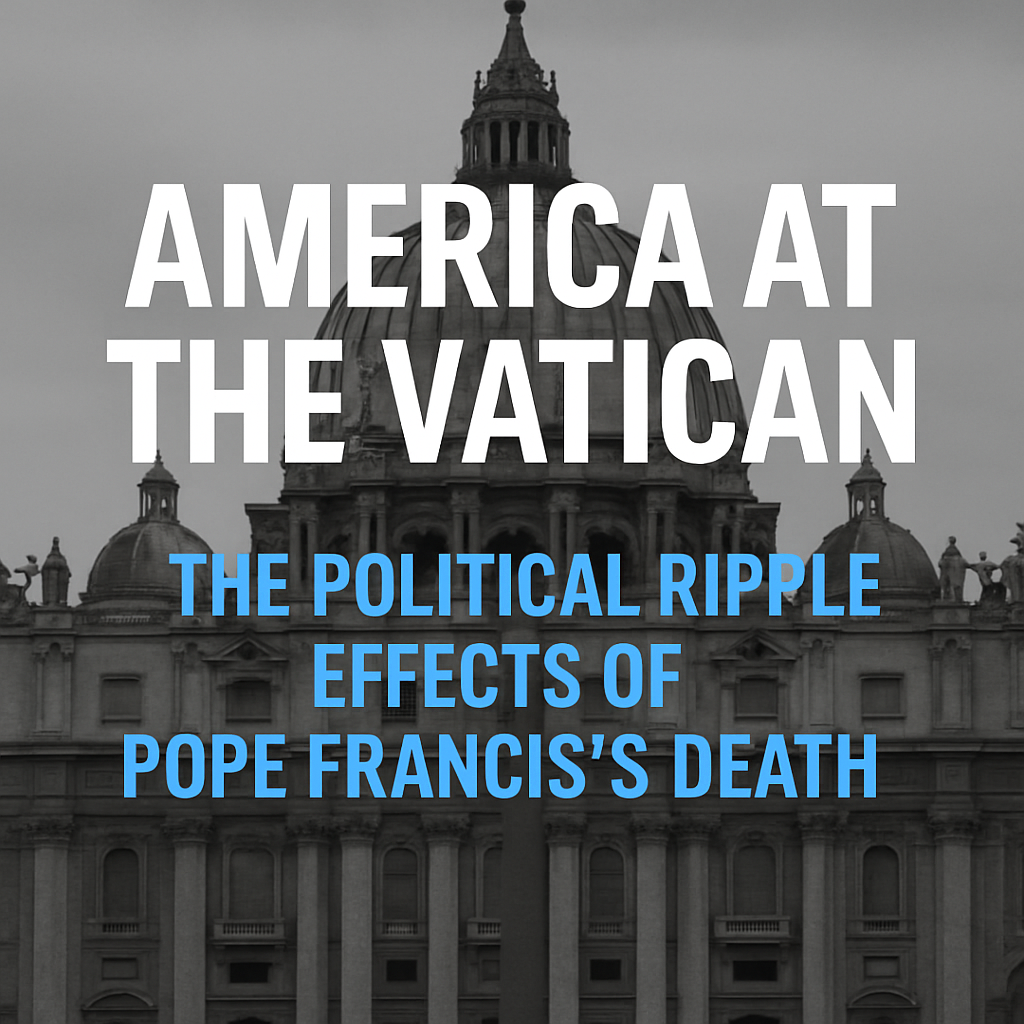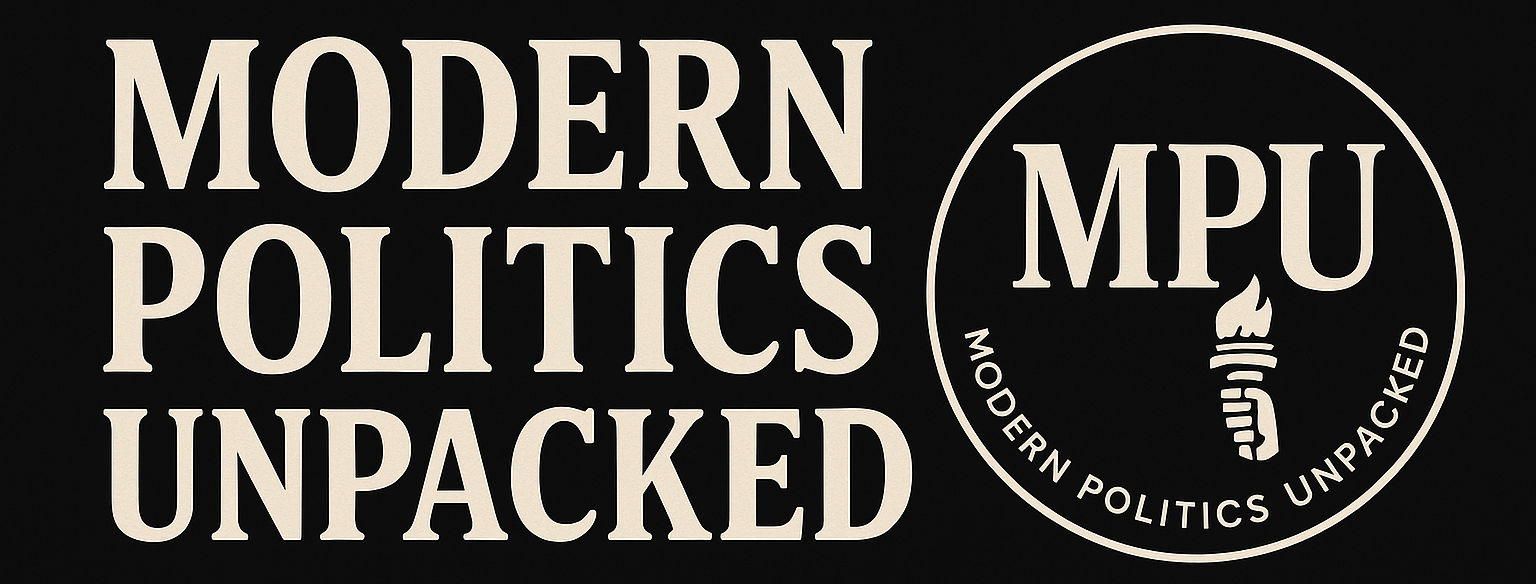America at the Vatican: The Political Ripple Effects of Pope Francis’s Death

On April 21, 2025, Pope Francis passed away at age 88, sending ripples through religious and political communities worldwide. As the first Latin American pope and a vocal critic of unfettered capitalism, Pope Francis shaped global conversations around climate change, economic justice, and migration. In the United States, his death has prompted not only spiritual reflection but also political recalibration. As the Vatican prepares for its next chapter, America’s political factions — from religious conservatives to progressive Catholics — are already positioning themselves for what comes next.
This article explores how Pope Francis’s death may influence American politics, religious identity, and policy debates — and why the next pope could hold unexpected sway in U.S. ideological battles.
1. The Pope Who Challenged Power
Francis was never a conventional figurehead. A Jesuit from Argentina, he made waves from the beginning:
- Refusing the papal palace, he lived in a modest Vatican guesthouse.
- He warned of the "tyranny of unfettered markets" and called climate change a "moral issue."
- His encyclical Laudato Si’ challenged world leaders to rethink economics and ecological responsibility.
In the U.S., reactions split:
- Progressives hailed his social critiques and emphasis on compassion for migrants and the poor.
- Conservatives admired his pro-life views but bristled at his economic critiques and openness to LGBTQ+ inclusion.
2. Catholic America: A Divided Church
Catholics make up about 20% of the U.S. population, but that bloc is far from unified.
Three major groups have emerged:
- Traditionalists: Emphasize Latin Mass, moral doctrine, and opposition to abortion. Many aligned with Trump-era nationalism.
- Centrists: Support Church teachings but embrace Francis’s social message.
- Progressives: Push for inclusion of women, LGBTQ+ individuals, and climate action.
Francis empowered the latter two groups, and with his death, traditionalist voices may now seek to reassert control — both in Rome and at home.
3. U.S. Politicians React: Reverence and Strategy
In Washington, political responses ranged from solemn tributes to subtle signaling:
- President Trump released a formal statement praising Francis’s "dedication to Christian heritage" but omitted references to climate or poverty.
- Sen. J.D. Vance, who met the Pope days before his death, described him as “obviously very ill” but “deeply concerned with faith in a changing world.”
- Democrats like Alexandria Ocasio-Cortez hailed his legacy of “speaking truth to power” and reaffirmed the need for economic justice.
Behind the scenes, strategists are already weighing how the next papacy might alter U.S. Catholic voter behavior, especially in battleground states like Pennsylvania and Wisconsin.
4. The Coming Conclave: What’s at Stake
The College of Cardinals will soon gather in secret conclave to elect Francis’s successor. Key considerations:
- Geopolitical Balance: Will the Church pivot back to Europe or continue prioritizing the Global South?
- Doctrinal Direction: Will the new pope support synodal reform and LGBTQ+ outreach or return to dogmatic rigidity?
- American Influence: U.S. Cardinal Raymond Burke, a critic of Francis, may rally traditionalist factions, but many cardinals view American politics as polarizing.
Who the cardinals choose could reshape global Catholicism — and reframe faith’s role in American policymaking.
5. Culture Wars and the Catholic Vote
The death of Pope Francis reignites debates over the so-called "Catholic swing vote."
- In 2020: Catholic voters split nearly evenly between Trump and Biden.
- In 2024: Trump won a majority of white Catholics, while Biden performed better with Latino Catholics.
Now, both parties are watching closely:
- Republicans hope for a pope who reinforces conservative doctrine, boosting alignment on abortion and school choice.
- Democrats want to preserve Francis’s legacy of moral framing on climate, inequality, and immigration.
Faith-based nonprofits and advocacy groups are already shaping narratives for upcoming elections.
6. Francis’s Legacy in U.S. Policy
Pope Francis influenced more than churchgoers:
- Immigration: His defense of migrants was frequently cited in debates over Trump’s border policies.
- Climate Policy: His 2015 encyclical helped galvanize the Obama-era Clean Power Plan and shaped the Biden administration’s rhetoric.
- Death Penalty: Francis’s push for global abolition fueled renewed campaigns in U.S. states like California and Virginia.
Even in death, his teachings may remain a blueprint for progressive lawmakers.
Conclusion: A Papal Shift With Political Consequences
Pope Francis’s passing marks more than the end of an era in Catholicism — it reopens key questions about faith’s influence on American identity and law. His successor will not just guide the Church’s spiritual future but will also shape ongoing political debates in the U.S., from climate to immigration to the culture wars.
For America, the Vatican is more than a distant institution — it’s a powerful mirror for our own internal conflicts, hopes, and ideologies. As the white smoke rises again, so too will a new chapter in the story of religion and politics.
